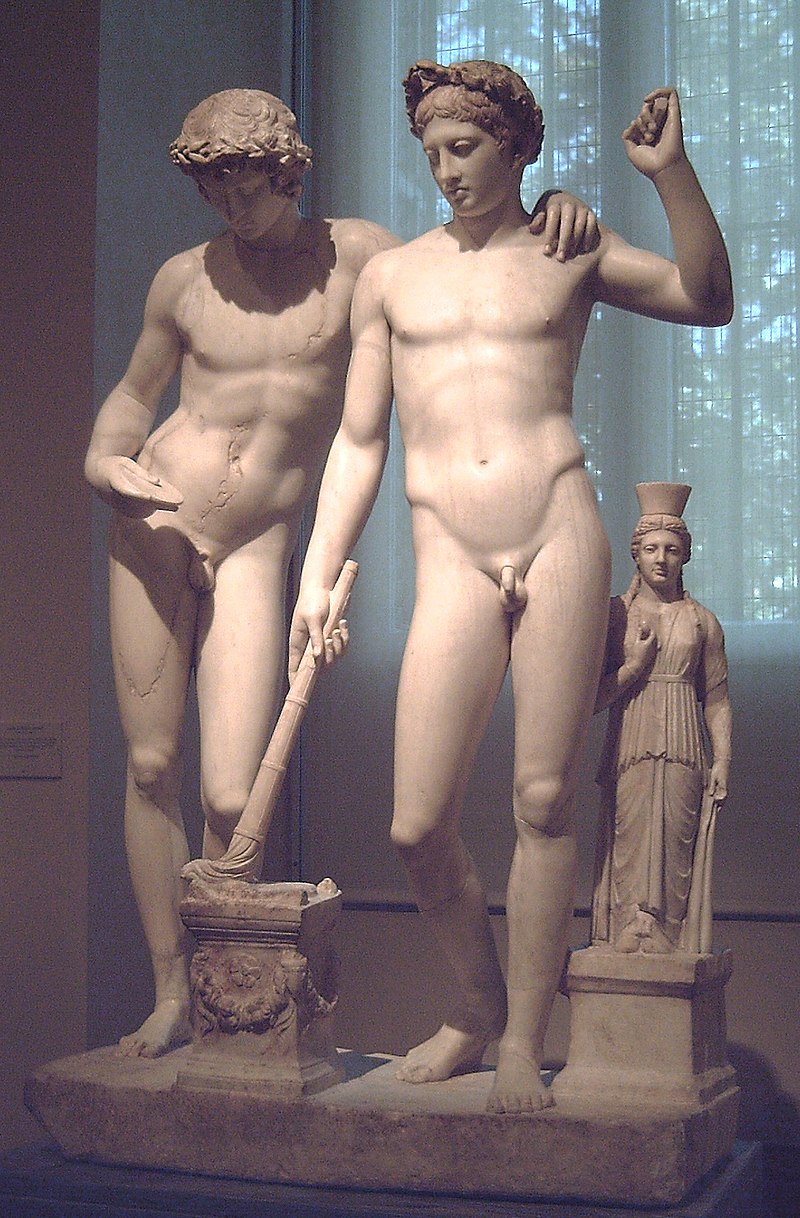
Roman sculptural group showing Castor and Pollux or, according to other authors, Orestes and Pylades.
BOOK IV: He becomes a teacher of rhetoric at Tagaste
For the space of nine years—from the age of nineteen to the age of twenty-eight—I deceived myself and deceived others… We were after the vanities of popular glory, the applause of the theatre, the public contests, the contests of hay wreaths, the games of spectacles, and the intemperance of concupiscence.
These were times when Augustine made a living by rhetoric, which he himself calls ‘the art of deception’, and lived with a woman; times when he took part in a recital of dramatic verse. Let us remember that the full title of his future magnum opus, unlike the way publishers abbreviate the copies we buy in bookshops, reads De civitate Dei contra pagans. In his Confessions he speaks of
…Venus, Saturn or Mars. We are led to believe that man—who is flesh and blood and proud rottenness—is guiltless.
But in his hometown a great misfortune befell him. His soulmate, a young lad of his age, fell ill and passed away. ‘My soul could not live without him’, Agustín confesses, ‘weeping flooded me’. See image above. Interestingly, Augustine uses Greco-Roman imagery when he writes: ‘Orestes and Payloads, who wanted to die for each other, or both of them together, because they considered it the worst death to live apart from each other’. He adds:
I was his second self. How well the poet expressed it when he said that his friend ‘was half his soul’ [Horace, Odes, I, 3,8]. I felt that my soul and his were but one in two bodies. I was horrified at having to live because I didn’t want to live half-heartedly. And perhaps this was also the reason for my fear of dying, so that the one whom I had loved so much would not die completely.
Was Augustine bisexual? Throughout the centuries Christian commentators don’t want to see it. That is one of the problems not only with biographies from Christian pens, but of history in general: those who write provide us with a Christian or neochristian slant. In my library there came to be three editions of the Confessions but in none of them did the translator, or whoever prefaced the book, suggested that these words of Augustine would evoke the homoeroticism of Orestes and Pylades, or Castor and Pollux.
I carried my soul torn to pieces and dripping with blood, a weight that neither I myself was able to carry, nor did I know where to put it. Neither the charm of the woods, nor the soft perfumes of a garden could soothe it. Nor did I find peace in song, or play, nor in splendid banquets, nor in the delights of bed and home, nor even in books and verses. Even light itself was a horror to me, and everything that wasn’t what he was, was unbearable and hateful. My only rest was moaning and tears, and when I stopped crying, I felt the heavy burden of my misery on my back.
As a defence mechanism a few pages later he confesses: ‘My greatest rest and consolation was to solace myself with the other friends… We all had something to teach the others and each learned from the others… Our souls melted together and into one’.
A pagan of the time might have read between the lines a homosexual relationship in what Augustine just said about his lachrymose agony, but as I wrote above the commentators on the Confessions never suggest it. Even my admired authors Eduardo Velasco and William Pierce did not understand the homoeroticism of ancient Greece and Rome.
One reply on “Augustine, 3”
Quietness…